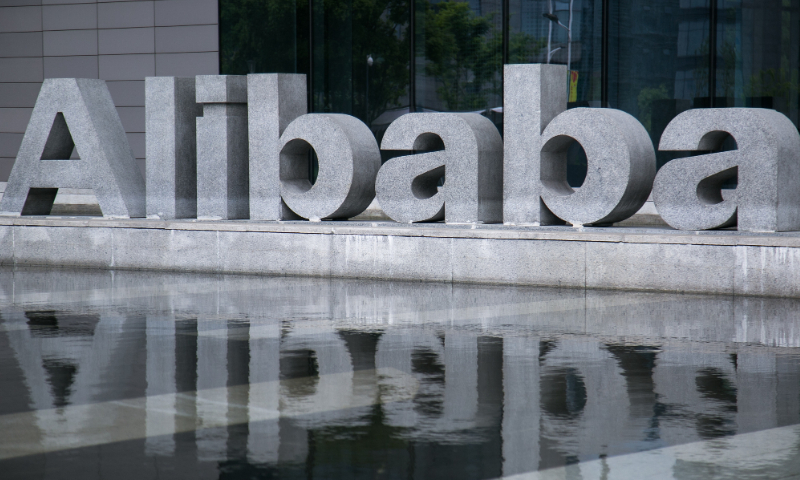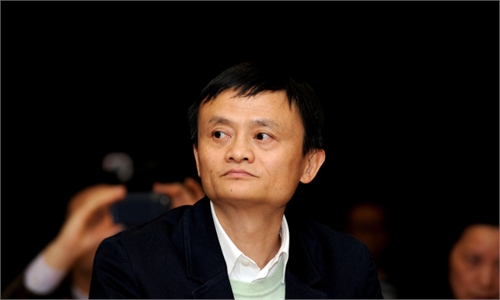Daniel Zhang’s reign at Alibaba comes to an end, as he steps down from cloud unit

Alibaba Photo: VCG
Chinese e-commerce giant Alibaba announced on Sunday that it has completed leadership reshuffle which marked the end of the era led by former chairman and CEO Daniel Zhang, who succeeded Jack Ma in 2019.
Joseph Tsai, an Alibaba co-founder, took over the chairman role from Zhang, while Eddie Wu took over the role as the group CEO.
The group management handover surprised the market as Zhang, who announced in June to quit his two roles as chairman and CEO, was originally believed to continue his tenure as head of Alibaba Cloud.
After the reshuffle, Wu took over Zhang's former position as chairman and CEO of the Alibaba Cloud.
Alibaba said in a filing sent the Hong Kong Stock Exchange that the spin-off of its cloud business will continue as planned after the management reshuffle.
In May, the e-commerce giant approved a full spin-off of the Cloud Intelligence Group via a stock dividend distribution to its shareholders, aiming to complete an IPO within the next 12 months.
The change in the management group of Alibaba Cloud business might have surprised the market, Goldman Sachs said in a note.
Despite the unexpected change, the investment bank still maintains a positive view on Alibaba's commitment to re-accelerating the growth of its Taobao and Tmall e-commerce business, hoping that the group will explore the growth momentum of cloud and its international business.
As explained in an internal letter to Alibaba employees on Sunday, Zhang's next step will be establishing a technology fund, which will receive $1 billion in investment from Alibaba. "The fund will support Alibaba's strategy of investing for future growth and continuing to develop our technology ecosystem," Tsai said.
One of Zhang's renowned contributions to Alibaba was his launching the annual online shopping festival, known as "Double 11" in China, often generating tens of billions of dollars of online sale in a single day on November 11.
It is also under Zhang's leadership that the e-commerce giant saw its market cap once hit the seventh slot in the world with significant increase in revenue and profits.
Facing fierce competition from domestic rivals, Alibaba has tried to restructure its units in the past years. In March, it announced decision to break up major business divisions into six units, marking its most significant organizational change in 24 years since the company was established.
According to the company, the six units include Cloud Intelligence Group, Taobao Tmall Commerce Group, Local Services Group, Cainiao Smart Logistics Group, Global Digital Commerce Group and Digital Media and Entertainment Group.
The firm's revenue in the last quarter beat market expectations with 234.16 billion yuan ($32.29 billion), up 14 percent from a year ago. It marked its strongest quarterly revenue growth in almost two years.
Global Times



